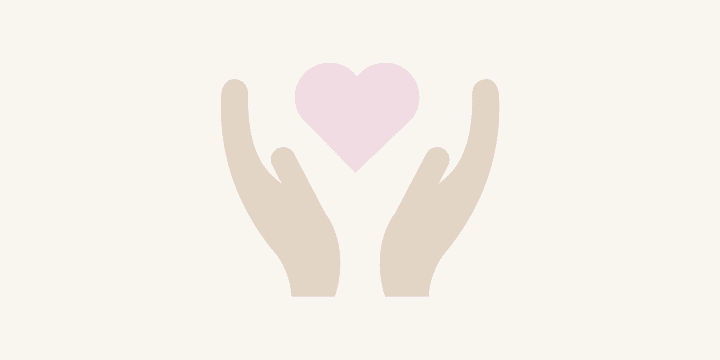There are no products in your basket.
Health & LifestyleManage Your News Consumption and Your Mental Health
![Manage-Your-News-Consumption-and-Your-Mental-Health.jpg?w=1024&h=427&scale Manage-Your-News-Consumption-and-Your-Mental-Health.jpg?w=1024&h=427&scale]()

As a kid, my parents constantly encouraged me to read or watch the news. They’d stress how important it was to know what was going on in the country/world. They weren’t wrong of course, but what they didn’t acknowledge was the negative effect over-consumption of news can have on your mental health.
Most news is bad news. In fact it’s about 90%. Whether it’s COVID, the war in Ukraine, the cost of living crisis or terror attacks, if you’ve seen the news in just the past week you’ll know there’s a lot to be concerned about.
We may be tricked into thinking that reading about current affairs is good for us because it’s more highbrow than scrolling through Instagram. But when you’re consistently consuming negative news – coming at us from all directions, from TV to Twitter – it’s no wonder that it takes a toll on our mental health. We are being bombarded by negativity.
Educating yourself on what’s happening in the world is important, but when does it become detrimental to our health? And how can you find the balance?
Stay rational and remember what’s really going on
With everything we read, it’s easy to become disillusioned about the state of the world. But what’s key is remembering that negative events are always happening and are always reported upon. Positive, peaceful events are happening too, but they are not reported upon.
The media will always prioritise ‘bad news’ because that’s what people seek out. Our innate negativity bias is an evolutionary protection mechanism which once upon a time saved us from real, physical threat. Today, this bias leads us to focus our attention on negative news stories – stories which present potential threats in our modern world.
The media cashes in on this by deliberately using spin and sensational headlines designed to lure us in (aka clickbait). Reading such headlines regularly keeps us in a constant state of threat which significantly contributes to feelings of stress.
The first way to combat the effect of the news on our mental health is to acknowledge and stay aware of all of the above. Doing so will help you rationalise and understand that while bad things are happening, the world is not necessarily getting worse – the media just makes you think it is.
Be kind to yourself
Remembering that the media deliberately uses sensationalism to hook readers will also help you realise it’s not your fault. It’s not your fault that you’ve fallen down a rabbit hole of negative news stories and it’s not your fault that you feel bad as a result. Your cognition has been exploited – yours and everyone else’s.
Allowing yourself to accept this will help you stay self aware, keep one foot on the ground and, as a result, manage how much negative news you expose yourself to.
Schedule time for news
Doing away with news entirely might not be the answer, but managing the time you spend with it will help. Confining your news consumption – and social media scrolling – to specific periods can help prevent overwhelm.
For example, avoid reading anything negative before bed as it’ll make you hyper alert (and anxious) at a time when you want to be winding down.
Online news outlets will always want to keep you on their site and will suggest more and more content. Avoid flooding yourself with a never-ended reel of stories by setting a timer. Once the timer sounds, close the app/page/channel and walk away.
Alternatively, both Apple and Google have tools which help you manage screen time on your smartphone and set limits on apps.
Don’t leave the news on in the background
There’s no harm in having background noise, but don’t let that background noise be news. Whether it’s on TV, radio or a podcast, to have news constantly playing is to allow a slew of negativity to permeate your subconscious.
Instead, choose music. Classical music, especially, has been shown to have positive effects on the mind such as improving focus and concentration.
Read good news
If seeing bad news all the time is getting you down, then you might want to completely change your news source to something more positive.
There are sites, like Positive News (https://www.positive.news/), which have the very intention of making you feel good.
Just one look through the latest headlines can give you a much-needed boost, as well as more faith in humanity!
If you do still choose to read traditional news websites, be wary of any ‘news source’ or account you follow that uses dramatic language (aka clickbait) when reporting news.
Also, check publication dates and watch out for links to old stories masquerading as recent news (and therefore trying to influence and mislead).
Talk to others (in real life) about current affairs
It helps to talk. A morning spent scrolling through Twitter newsfeeds might leave you feeling bleak, so have a chat with a friend about it.
Talking about what’s going on in the world is a healthy way to process our own feelings.
It also opens us up to other perspectives which brings us balance and enriches our inner worlds.
Take time out to do what you love
After too long staring down the barrel of bad news stories, you might not even remember what you love!
If this is the case, make a list. Write down everything that makes you happy (that doesn’t involve social media) and see if you can tick off at least one thing on that list each day.
It might be something as simple as taking a bath, going for a walk, playing with your dog, cooking something delicious or calling a friend.
Allowing time for these small but positive activities will counter the negative effect of the news.
You’re reconnecting with yourself and with the world immediately around you and you’re finding the good once again. (Another way to find the good is to keep a gratitude diary, the benefits of which Nia Griffiths discusses here.)
So, Mum and Dad were half right – keeping up with the world’s events is important, but not as important as your mental health.
Remember to give that more attention than you give the news.


















